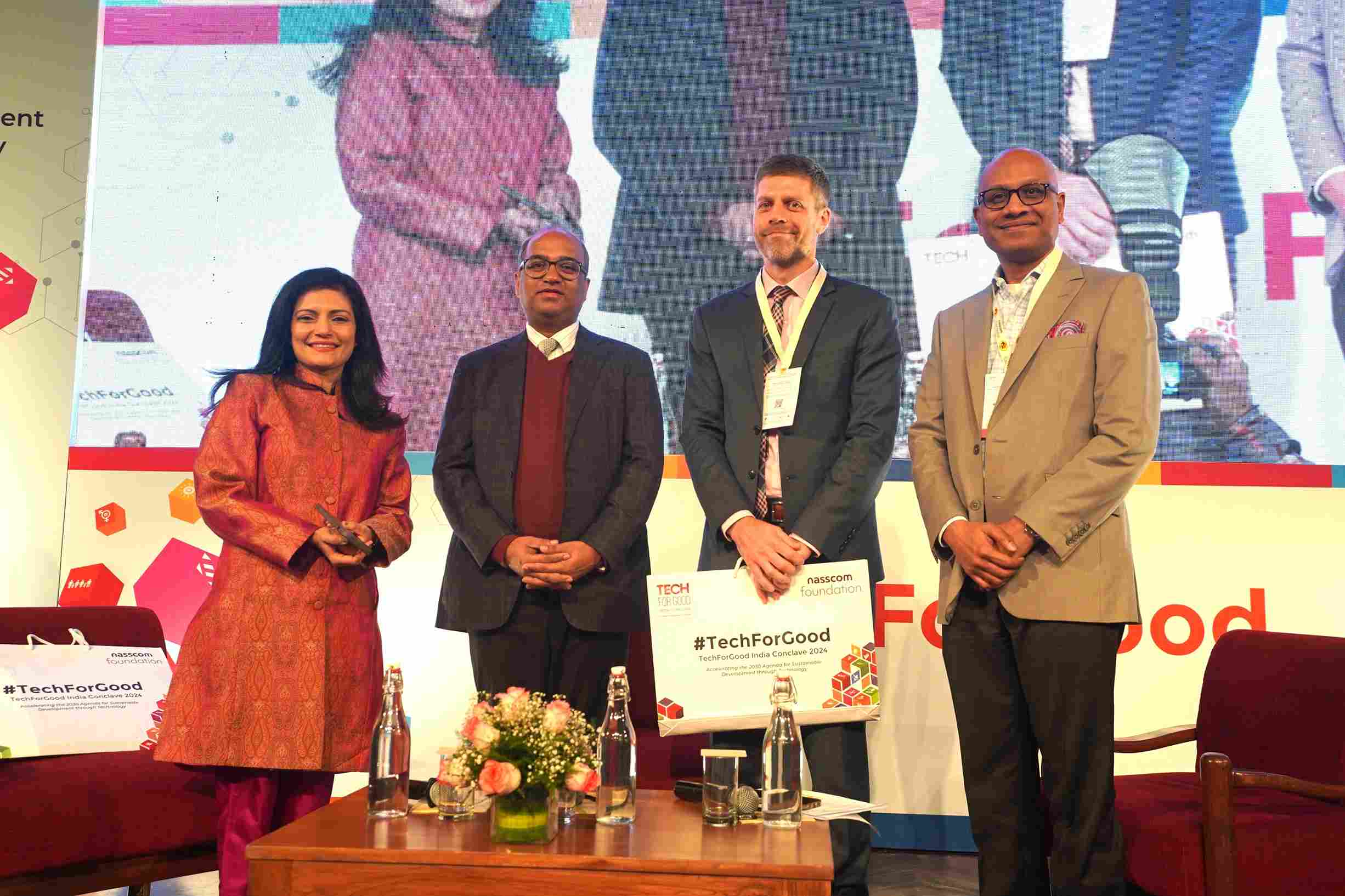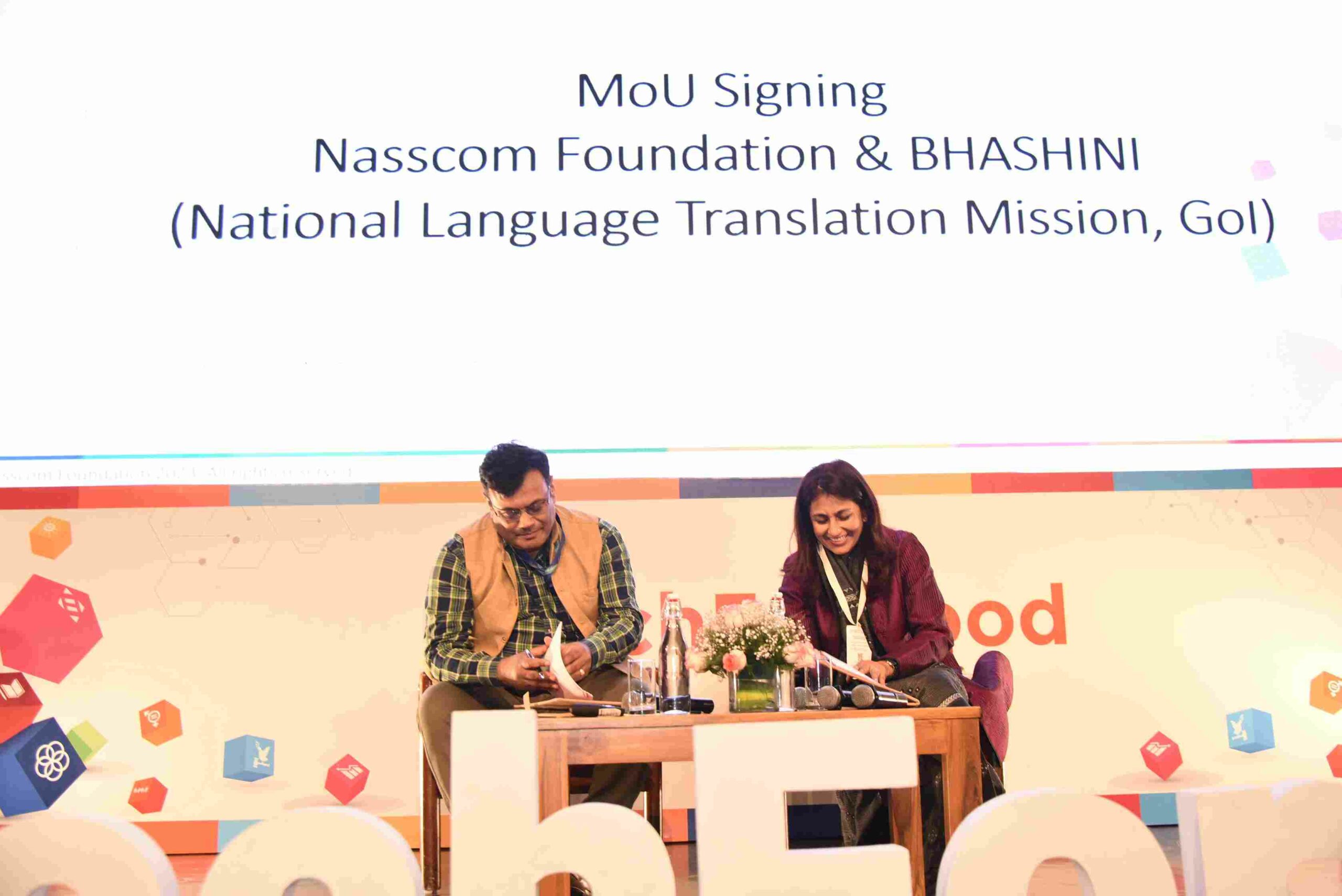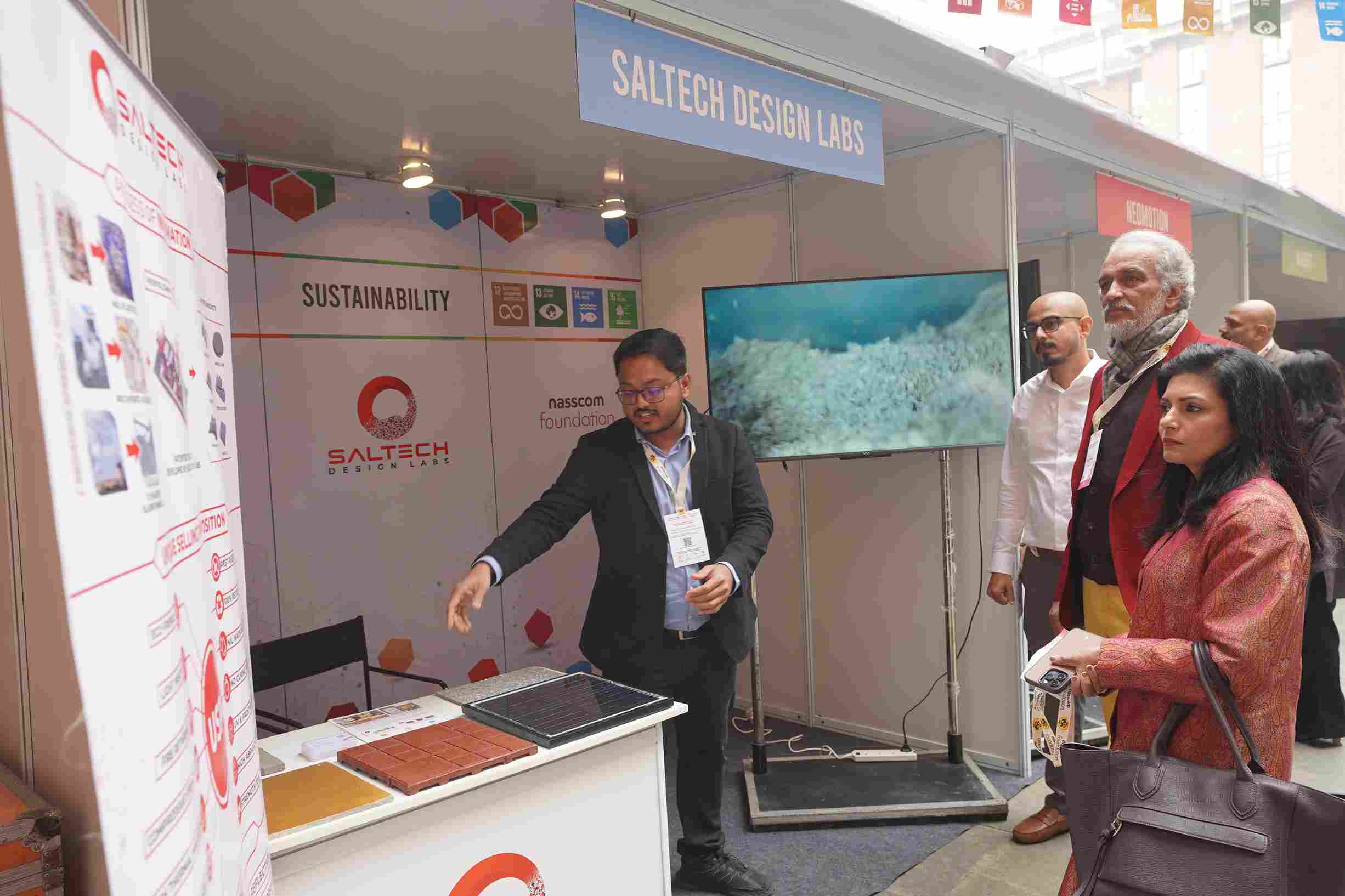TechForGood India Conclave: Highlighting the Importance of Collaboration & Technology To Accelerate SDGs
TechForGood India Conclave 2024, aligned with UN’s 2030 SDG Agenda, emphasises on collaborative efforts to overcome challenges hindering SDG progress in India. The conclave, focusing on sustainability, digital equity, and social innovation, highlighted collaborative partnerships for SDG success.

This article is sponsored by nasscom foundation
With a global vision to foster peace and progress around the world, in 2015, all the United Nations member states embraced the 2030 Agenda for Sustainable Development. With its 17 Sustainable Development Goals (SDGs), the agenda sets forth imperative tasks that demand collaborative efforts to tackle the world’s challenges. Within these goals lie not only significant challenges but also unprecedented opportunities for businesses, governments, and communities on a global scale.
Emphasising the universal nature of the issue, it is pivotal to acknowledge that addressing the decline in SDG progress necessitates collective attention and action.
“Unless we act now, the 2030 Agenda will become an epitaph for a world that might have been,” said UN Secretary-General António Guterres.
Aligning with the UN’s 2030 SDG Agenda, the NASSCOM Foundation recently organised the TechForGood India Conclave 2024 in New Delhi. Focused on the theme ‘Accelerating the 2030 Agenda for Sustainable Development through Technology’, the event brought together civil society, social innovators, entrepreneurs, government representatives, and technology and development leaders to collaborate on accelerating India’s SDG objectives.
It covered essential topics such as sustainable living, climate action, healthcare, education, and empowering women entrepreneurs. The event included engaging masterclasses, fireside chats, and dynamic panel discussions, bringing together diverse stakeholders.
“If we don’t take action today, there won’t be a future. The TechForGood India Conclave 2024 aims at uniting changemakers to accelerate India’s progress towards the SDGs, sparking bold action on critical issues like sustainability, digital equity and social innovation. The conclave is a platform for corporates, civil society, last mile enablers, social innovators and the social investment community to come together to take urgent courageous and bold action to address the critical issues with technology as an enabler,” said Nidhi Bhasin, CEO, Nasscom Foundation.

Challenges to achieving SDGs in India
Agreeing that achieving the SDGs in India and globally is a complex task, here’s the breakdown of the key challenges that came up during the conclave, hindering meaningful change in India.
Infrastructural and institutional barriers: Rapid urbanisation and digitalisation have widened the digital divide, emphasising the need to address gaps in infrastructure and digital accessibility. Additionally, the National Family Health Survey (2019-21) reveals that women in India face digital exclusion, with only one in three having ever used the internet compared to more than half of men. Rural areas exhibit even greater disparities.
Absence of collaboration: The absence of robust networks and collaboration among stakeholders is a significant obstacle to achieving SDGs. This hampers the sharing of best practices, innovative solutions, and lessons learned.
Resource and competency gaps: A recent NSSO survey highlights a digital skill gap among Indian youth, with only 27.5% classified as ‘digitally skilled’. This deficiency hampers the application of innovative solutions crucial for sustainable development. Furthermore, scarce competencies and resources impede the use, adoption, and creation of new knowledge and technology.
Persistent Issues: Despite significant progress, entrenched issues like gender inequality, the digital divide, poverty, and inadequate healthcare access remain substantial hurdles.
Addressing these challenges is possible through the power of technology, which acts as a force multiplier and holds the potential for progress. In India, the digitalisation wave has led to a transformative shift — empowering individuals, improving data accessibility, and fostering inclusivity.
With the next seven years being crucial, it is increasingly undeniable that technology plays a key role in determining whether the UN SDGs are achieved. A World Economic Forum report suggests that existing technology applications could facilitate over 70% of the SDG’s 136 targets.

Facilitating technology and innovation for SDGs
To unlock this potential, the following pillars have been pointed out as being crucial for harnessing technological innovation in the TechForGood India Conclave.
Sustainability: Technology, driven by initiatives like Digital India and Aadhaar, has reshaped businesses and daily life in India. This digital revolution has had a transformational impact, spurring e-commerce, financial inclusion, and access to information. As a result, new opportunities have emerged, accelerating economic activity.
In aspirational districts, leveraging technology becomes a means to bridge infrastructure gaps, enhance digital literacy, and contribute to sustainable development, thereby fostering economic growth.
Digital equity: Overcoming socio-economic barriers, especially in rural and tier 2 and 3 cities, is crucial for SDG achievement. Technology plays a vital role in this endeavour by facilitating education through online platforms, connecting remote communities, promoting economic growth, and providing opportunities for skill development and employment.
Embracing inclusive design principles ensures accessibility for individuals with disabilities, thereby contributing to creating a more equitable society.
Social innovation: Social innovation offers inventive technological solutions to societal issues, empowering local communities and addressing diverse needs. Prioritising sustainability and scalability, these innovations aim for enduring impacts adaptable to various situations, significantly contributing to multiple SDGs.
Collaborative partnerships among private entities, NGOs, and governments drive equity and extend development initiatives to marginalised groups, providing a boost in the race towards SDGs.
Collaboration: Collaborative efforts, driven by a shared goal of leveraging technology for positive change, are crucial for SDG achievement. Bringing together expertise from governments, businesses, NGOs, academia, and communities allows for comprehensive problem-solving.
A collective perspective on using digital innovation, data-driven solutions, and connectivity tools amplifies efforts to advance the SDGs, making collaboration the binding agent for success.
“One of the things that really struck me while building tech startups was the idea of how one could build an internet-based company to drive large-scale social change. Citizens want to be inspired. The need to be inspired is a universal need. It’s not just about storytelling. It’s about how you make a story relatable to the average citizen,” said Dhimant Parekh, Founder and CEO, The Better India — one among the over 80 notable speakers and delegates present at the event.
The key message from the conclave is that combining technology with collaborative efforts can speed up progress in education, climate action, poverty reduction, and achieving at least 70% of the 169 SDG targets using data and digital technologies. This needs urgent action and a united effort from stakeholders like government, organisations, communities, and individuals. Effective strategies, policies, and initiatives are essential to accelerate the 2030 agenda for sustainable development. If you found our stories insightful, informative, or even just enjoyable, we invite you to consider making a voluntary payment to support the work we do at The Better India. Your contribution helps us continue producing quality content that educates, inspires, and drives positive change. Choose one of the payment options below for your contribution- By paying for the stories you value, you directly contribute to sustaining our efforts focused on making a difference in the world. Together, let’s ensure that impactful stories continue to be told and shared, enriching lives and communities alike. Thank you for your support. Here are some frequently asked questions you might find helpful to know why you are contributing?

“India as a country is extremely committed to using technology and leveraging DPIs to fast-track the SDGs, and also to share our experiences and expertise with the global community,” said Abhishek Singh, Ministry of Electronics and Information Technology.
Edited by Padmashree Pande
This story made me
-
97
-
121
-
89
-
167














